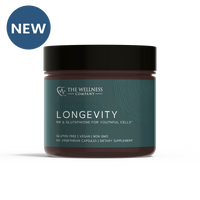On Mothering and Medicine

By Dr. Julie Ponesse
In 1858, Ann Reeves Jarvis took matters into her own hands.
Her small Appalachian community of Taylor County was reeling from an epidemic of infant mortality. This was a tragedy with which Ann was all too familiar, having lost several of her own children to infectious diseases.
To remedy the issue, Ann organized “Mother’s Day Work Clubs” to improve household sanitation, inspect bottled milk, and provide medicine to ailing mothers. Nearly a decade later, Ann’s efforts extended from the home to the battlefield. As the American Civil War tore her community apart, she coordinated brigades of women to supply food, clothing, and aid to soldiers, regardless of their partisan allegiance.
After the war, Ann held a “Mother’s Friendship Day” to unite veterans and neighbors of all political persuasions. Despite fears that the event would break out in violence, the day was a success, with veterans from the North and South shaking hands in peace for the first time in years. It was Ann’s daughter, Anna, who campaigned in her mother’s honor to memorialize the day we now know as “Mother’s Day.”
The Maternal Essence of Medicine
Ann Jarvis’ heroic efforts to heal her community will forever link Mother’s Day with medicine. Of course, mothers have always been central to healthcare, as ‘wise women,’ healers, midwives, and even surgeons.
Despite facing persecution in the form of witch-hunts in the early Modern Era, and restricted access to medical education until the 1800s, maternal virtues such as compassion, selflessness, and sensitivity to suffering epitomize the true essence of medicine.
Mothering and medicine share plenty of common ground on the moral landscape. In some ways, the physician-patient bond mirrors that of mother and child. Both relationships involve deep vulnerability, and rely on virtues such as humility, empathy, and trust to navigate the treacherous waters of uncertainty and suffering. Anyone who has had the privilege of becoming a mother knows the term “mother” is as much a verb as it is a noun. It involves doing as much as being, mothering another in the ways that most deeply express one’s capacity for love, sacrifice, and a willingness to meet others at their points of deepest suffering and weakness. Medicine, at its heart, does the same.
It seems, however, that modern medicine is falling short of this ideal. According to a 2023 report from the Confederation of Tomorrow, Canadians’ trust in medical health advice is declining. In fact, the number of Canadians who currently feel that our healthcare system is in crisis and requires a complete overhaul has tripled when compared with survey data from the early 2010s. This decline in trust underscores the need to refocus on the virtues at the core of good medicine.
The Hippocratic Oath, upon which many graduating physicians still swear, refers to ideals such as love, humility, and understanding; compassion, trust, and devotion; and promise-keeping, attentiveness to suffering, and appreciation of the sacredness of life.
These ideals, according to scholarly research, are largely developed through our first and often most significant relationship – our bond with our mother. As we celebrate Mother's Day, let us not only honor the sacrifices and love of our own mothers but also strive to re-infuse the maternal spirit into the field of medicine. In doing so, we might rebuild a compassionate, empathetic healthcare system that Canadians can trust.
Motherhood is More than Unpaid Labor
Despite the critical role mothers play in molding our moral character, some segments of our culture still disparage women who choose to prioritize family over career. Adherents of this worldview often cynically reduce motherhood to mere “unpaid labor.”
It is, of course, a sign of the progress humanity has made over the past century that women have the autonomy to choose whether to pursue a career, a family, or – like Ann Jarvis – to balance both. To acknowledge this freedom as progress, however, doesn’t require us to condemn as second-class citizens women who choose to devote themselves to their families at the expense of a career. True freedom ennobles a woman to choose motherhood as a vocation as worthy as any.
Civil rights activist Marian Wright Edelman once said, "it's hard to be what you can't see." Only by seeing, acknowledging, and honoring the invaluable role that mothers play in shaping humanity can we hope to model those virtues ourselves and create a world where broader systems such as healthcare embody the positive virtues of the maternal spirit.
How Love Shapes Our World
In her seminal work, The Rights of Infants, Dr. Margaret Ribble explores how our mothers provide us with the moral foundations needed to navigate the world, which go on to shape our attitudes towards each other and society at large. Ribble explains that mothers not only biologically nourish and physically protect their children, but also create a sense of psychological stability and trust that propels healthy development and fosters self-reliance.
In their work on “Attachment Theory” in the 1980s, John Bowlby and Mary Ainsworth expanded on Ribble’s ideas, studying how the love and care we receive early in life – often from our mothers – shapes our attitudes towards the world.
According to attachment theory, having a responsive and attentive caregiver teaches infants that as a general rule, the world is safe, and people can be trusted. This stable relationship grants us the confidence to later move beyond it, embracing the risks inherent in exploring the broader world.
Take, as a grim counterexample to the positive impact of motherly love, the hundreds of thousands of orphans deprived of human touch and raised in conditions of severe psychological neglect in state-run institutions in 1980s Communist Romania.
Psychologists who evaluated the attachment styles of these orphans found that almost none of them demonstrated what researchers call secure attachment, a healthy form of relating to other people which reflects an attitude of trust. Instead, most demonstrated disordered attachment styles, either in the form of complete emotional withdrawal, or indiscriminate attachment to anyone.
The work of these scholars scientifically confirms what most of us already know: children don’t just need food, water, and shelter to thrive. The love of a responsive caregiver is paramount to a child’s psychological, social, and moral development.
Given the pivotal role mothers play in shaping our world by nurturing trusting and trustworthy human beings, it is critical that we not only elevate the status of motherhood in practical terms, but also that the maternal spirit is acknowledged and integrated into the ethos of broader social systems such as medicine.
A Path Toward Compassionate Healthcare
This Mother’s Day, as we honor motherhood and the moral emotions it fosters, we move closer to a culture of medicine that embodies the quintessential maternal spirit. In doing so, we shift our conception of healthcare from a technologically-focused focused, business-oriented transaction, to a sacred, morally driven endeavor.
We would do well to bear in mind a line from a modern version of the Hippocratic Oath: “I will remember that there is art to medicine as well as science, and that warmth, sympathy, and understanding may outweigh the surgeon's knife or the chemist's drug.”
References
https://www.womenhistoryblog.com/2007/02/anna-jarvis.html
Jefferson, L., Bloor, K., & Maynard, A. (2015). Women in medicine: historical perspectives and recent trends. British medical bulletin, 114(1), 5-15.
Hajar, R. (2017). The physician's oath: historical perspectives. Heart views: the official journal of the Gulf Heart Association, 18(4), 154.
Ribble, Margaret (1943). The rights of infants. NY: Columbia University Press.
Bowlby, J. (1979). The bowlby-ainsworth attachment theory. Behavioral and Brain Sciences, 2(4), 637-638.
Zeanah, C. H., Smyke, A. T., Koga, S. F., Carlson, E., & Bucharest Early Intervention Project Core Group. (2005). Attachment in institutionalized and community children in Romania. Child development, 76(5), 1015-1028.














